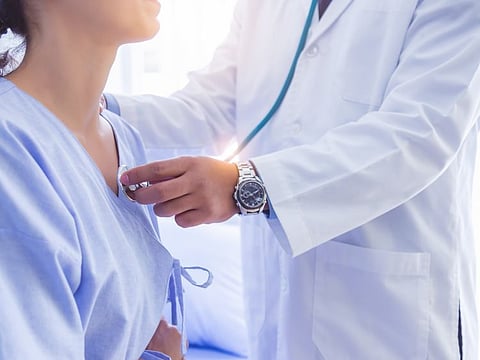Dubai student, 18, dies: Doctors warn of hidden heart risks in teens
Doctors urge parents to take cardiac screening seriously

The sudden death of 18-year-old Indian student Vaishnav Krishnakumar in Dubai during Diwali celebrations has raised concerns over hidden heart conditions in seemingly healthy young people. Although sudden cardiac arrest is uncommon among teens, doctors highlighted the need for greater awareness and early cardiac screening, particularly for those involved in sports or strenuous activity.
Vaishnav reportedly had no known health problems and was known to be a fitness enthusiast who went to the gym and encouraged his friends to eat healthy and stay active. His death has sparked debate on whether undiagnosed heart conditions may go unnoticed even in athletic youngsters.
What causes sudden cardiac arrest in young people?
Speaking to Gulf News, Dr Basma Mohamed Aly El Nager, Specialist Cardiology at Burjeel Medical Center, Al Shamkha, said most such deaths are linked to conditions that often remain undetected.
“Usually, it is sometimes arrhythmia (irregular heartbeat), for example, long QT, short QT (disorders of the heart’s electrical system), or some kind of cardiomyopathy (disease of the heart muscle), especially hypertrophic obstructive cardiomyopathy,” she said.
“In rare cases, there are congenital anomalies in the coronary vessels or coronary arteries. These are the major causes of sudden cardiac death in young people and teenagers.”
Globally, sudden cardiac death among children and young adults is uncommon, occurring in an estimated 1-2 cases per 100,000 people.
Lifestyle risks rising
Dr Usair Ansari, Specialist Cardiologist at Aster Clinic, Discovery Gardens, said sudden cardiac arrest in young people is now becoming “more visible” due to lifestyle changes.
“Sedentary habits, poor diet, obesity, and undiagnosed heart conditions such as cardiomyopathies or rhythm disorders can all increase risk. Excessive stress, sleep deprivation, and the use of stimulants or energy drinks can further strain the heart. In some cases, viral infections or myocarditis may trigger cardiac complications,” he said.
Family history a key factor
Genetics play a major role in many of these cases, said Dr El Nager, calling for family screening in cases of unexplained sudden death.
“If there is a family history of sudden cardiac death, we have to investigate further, sometimes for genetic causes, sometimes for cardiac arrhythmia like a channelopathy. Usually, when we have such a case, we also screen the families, especially the first-degree relatives,” she said.
Warning signs parents often ignore
While some cases show no symptoms at all, doctors said there are often red flags that are dismissed as fatigue or stress.
“Usually, if there is a case of syncope (fainting or passing out) in the family, they should be alert,” said Dr El Nager. “If the patient has any dizziness during exercise or experiences recurrent palpitations, we should check for arrhythmia or chest pain during physical activity.”
Screening can save lives
Doctors said preventive heart check-ups should not be limited to adults.
“People who are planning to participate in sports such as football or swimming, especially in competitive settings, should undergo screening to detect any underlying cardiac abnormalities through ECG and echocardiography before starting,” Dr El Nager advised.
She added that teens with palpitations, history of fainting, or a family history of sudden cardiac death should be screened early.
What to do in emergency?
Immediate action is vital during sudden cardiac arrest as every second counts.
“If someone collapses and is unresponsive, check for breathing and a pulse. If absent, call emergency services right away and start CPR: push hard and fast in the centre of the chest at a rate of 100–120 compressions per minute,” said Dr Ansari.
“If an Automated External Defibrillator (AED) is available, switch it on, follow the voice prompts, and deliver a shock if advised. Continue CPR until professional help arrives. Quick, coordinated action can double or even triple survival chances, making public CPR and AED awareness vital for everyone,” he added.



